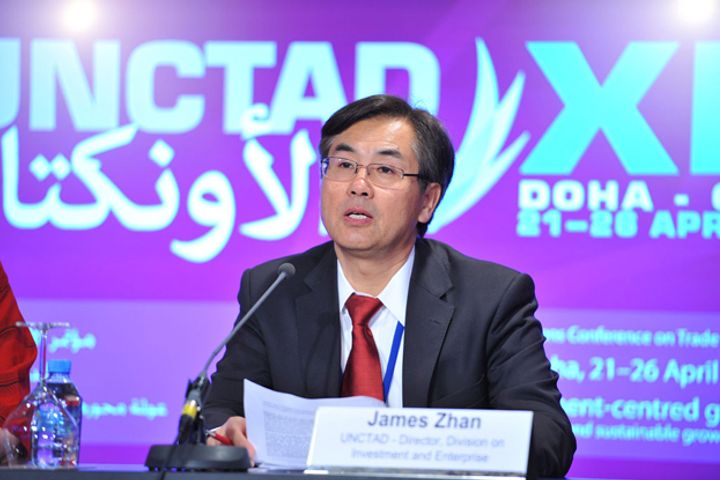 US Tax Reform Won't Impact Foreign Investment in China, UN Official Says
US Tax Reform Won't Impact Foreign Investment in China, UN Official Says(Yicai Global) Feb. 7 -- The United States tax reform may prompt American multinationals to repatriate profits, but will have little impact on foreign investment in China, James Zhan, a senior director at the United Nations Conference on Trade and Development, told state-owned news agency Xinhua in an interview in Geneva.
The latest Global Investment Trends Monitor issued by the UNCTAD yesterday suggested overseas branches of US multinationals may cut retained earnings in the wake of the tax switch-up, which could directly affect global investment.
US investments in China stand at about USD92.5 billion, making up less than 7 percent of total foreign investment in the country and a small share of America's USD6.4 billion worth of outbound investment, US official data shows.
There is little scope for American firms to move their investment back home. More than half of those which invest in China do so in its manufacturing industry, where assets are illiquid and difficult to move. Companies that pump money into the services sector mainly do it to make their mark in a new country, and easily-liquidated cross-border investments, such as those in finance and property, make up a limited portion of American investments in China.
Zhan believes that US firms' investment returns in China are higher than those in other major overseas markets, and profit re-investment by American companies in the world's second largest economy is above the global average, so there is little room for these companies to repatriate their profits earned in China.
Reinvesting profits has become the most important way in which US companies invest in China, with only a small percentage of profits remaining as cash, data from the US Bureau of Economic Analysis shows. American multinationals have retained nearly USD2 trillion dollars of profits in cash overseas, most of which is in the handful of developed countries with low tax rates and offshore financial centers in the Atlantic Ocean.
Overall, the tax reform aims to prevent US multinationals, especially tech firms, from evading taxes by exploiting their complicated global investment and operation networks. The tax rate is just one of the many factors companies consider when determining where to invest, Zhan said, adding that China will not see a strong capital outflow to America as a result of the change.
However, the reform may lead to intensified competition between the two nations as they strive to attract foreign investment, he added. The US is trying to keep high-tech firms at home and rejuvenate its traditional manufacturing sector by cutting taxes, which will to some extent make some American industries more attractive to external investors.
Monetary policy, economic conditions and other countries' reactions could affect the consequences of the reform, and its ultimate outcome remains to be seen, Zhan said.